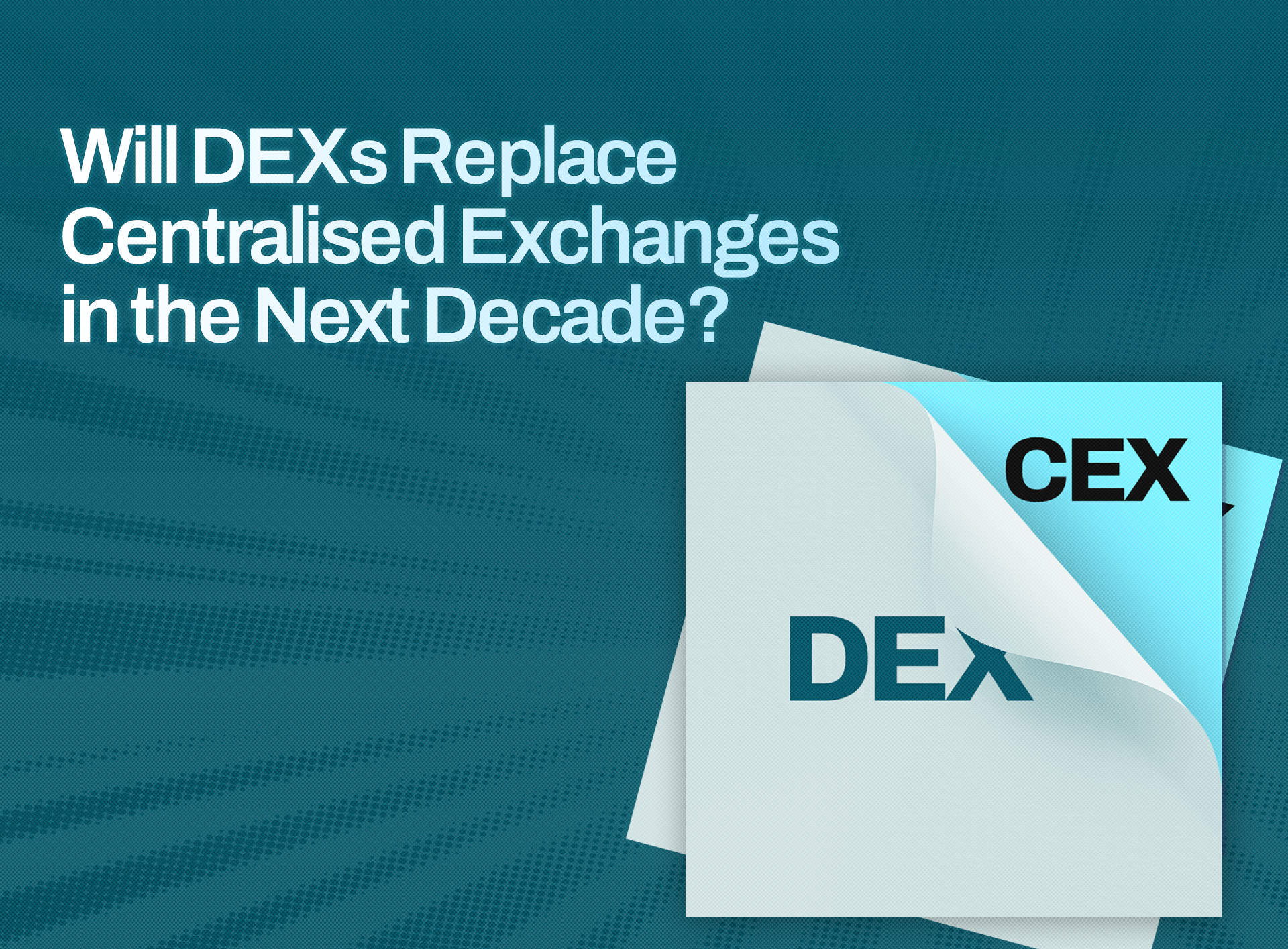The market for cryptocurrencies is growing quickly, so crypto exchanges need scalable, reliable, and secure solutions.
The core of these developments is blockchain technology, which provides creative answers that improve user experience, efficiency, security, and transparency.
This article examines some of the most cutting-edge blockchain solutions influencing cryptocurrency exchanges in the future.
1. Decentralized Exchanges (DEXs)
The development of decentralized exchanges (DEXs) is one of the biggest advancements in blockchain technology. DEXs feature smart contracts that enable peer-to-peer transactions, in contrast to centralized exchanges (CEXs), which depend on middlemen to facilitate trading.
Benefits of DEXs:
- Security: DEXs lower the possibility of hacks and security breaches by doing away with middlemen.
- Privacy: By maintaining control over their private keys, users improve the security of their personal information and anonymity.
- Resistance to Censorship: Since DEXs are decentralised, they are immune to governmental limitations and rules.
Challenges:
- Liquidity Issues: DEXs often face liquidity problems compared to CEXs.
- User Experience: The complexity of interacting with smart contracts may be challenging for non-technical users.
2. Layer 2 Scaling Solutions
Blockchain networks' scalability problems have been addressed creatively by Layer 2 scaling solutions. These solutions seek to lower expenses and boost transaction volume while preserving security.
Popular Layer 2 Solutions:
- Lightning Network (Bitcoin): Enables faster and cheaper transactions by conducting transactions off-chain before settling on the main blockchain.
- Polygon (Ethereum): Uses rollups and sidechains to increase Ethereum's scalability.
- Optimistic rollups: These reduce congestion on the main blockchain by combining several transactions into a single transaction.
Advantages:
- Reduced Fees: Makes transactions more economical by lowering petrol fees.
- Faster Transactions: Enhances user experience and speeds up transactions.
- Increased Scalability: Perfect for cryptocurrency exchanges, it can handle a greater volume of transactions.
3. Smart Contracts for Automated Trading
Smart contracts are self-executing agreements that are programmed with predetermined conditions. They are essential in making it possible for blockchain-based cryptocurrency exchanges to have safe and automated trading procedures.
Use Cases:
- Automated Market Makers (AMMs): Smart contracts are used by platforms such as Uniswap and PancakeSwap to enable decentralised trading in the absence of order books.
- Escrow Services: To maintain trust in peer-to-peer trading, smart contracts serve as middlemen.
- Flash Loans: Provides traders with immediate access to loans without collateral in a single transaction block.
Benefits
- Transparency: A permanent ledger records all transactions.
- Security: Removes the possibility of deception and manipulation.
- Efficiency: Accelerates transactions by reducing the need for manual intervention.
4. Trading Solutions for Cross-Chains
A major issue for cryptocurrency exchanges is interoperability because many blockchains function in isolation. The smooth transfer of assets between various blockchain networks is made possible by cross-chain trading solutions.
Innovations in Cross-Chain Solutions:
- Atomic Swaps: Allow for direct, peer-to-peer cryptocurrency exchanges between various blockchains without the need for middlemen.
- Blockchain Bridges: Polkadot and Cosmos are two examples of technologies that make it easier for different blockchains to communicate with one another.
- Wrapped Tokens: Bitcoin can be used on Ethereum-based DeFi platforms thanks to assets like Wrapped Bitcoin (WBTC).
Effect on Cryptocurrency Exchanges:
- Enhanced Liquidity: By allowing the trading of assets across several blockchains, cross-chain solutions improve liquidity.
- Better User Experience: Traders have unrestricted access to a wider variety of assets.
- Decreased Reliance on CEXs: By enabling direct network trading, users can lessen their dependency on centralized platforms.
5. AI-Powered Blockchain Analytics
Artificial Intelligence (AI) is revolutionising crypto exchange operations through improved fraud detection, security, and predictive analytics.
Principal Uses of AI:
- Fraud Detection: Real-time transaction monitoring by AI-powered algorithms helps spot suspicious activity and stop fraudulent transactions.
- Trading Bots: AI-powered bots that study market patterns and automatically place trades according to preset plans.
- Risk Assessment: AI systems evaluate trading activity risks, assisting exchanges in reducing losses.
Benefits for Exchanges:
- Improved security: Lowers financial crime and increases adherence to rules.
- Increased Trading Efficiency: AI makes order execution more efficient, which boosts traders' profits.
- Making Better Decisions: Offers traders and exchange operators insights based on data.
6. Blockchain-Based Identity Verification (KYC/AML)
Crypto exchanges are very concerned about regulatory compliance. Identity verification systems based on blockchain simplify, improve security and privacy while adhering to Know Your Customer (KYC) and Anti-Money Laundering (AML) protocols.
Advancements in Identity Solutions for Blockchain:
- Self-Sovereign Identity (SSI): Gives users safe control over how they share their private data.
- Decentralized Identifiers (DIDs): Offer digital identities that can be verified independently of centralised authorities.
- Blockchain-Based KYC Platforms: Products such as uPort and Civic make it possible for identity verification to be reusable, safe, and easy.
Benefits
- Increased Security: Preserves user information and lowers identity theft.
- Faster Onboarding: Makes account verification faster by streamlining the KYC procedure.
- Cost Reduction: Lowers the running expenses of identity verification.
7. Liquidity and Tokenisation Solutions
The way assets are traded on cryptocurrency exchanges is being completely transformed by tokenisation. Tokenisation increases liquidity and expands investment options by transforming physical assets into digital tokens on the blockchain.
Use cases:
- Security Tokens: Stand in for ownership of tangible assets such as stocks and real estate.
- Stablecoins: Provide price stability, making them ideal for trading and remittances.
- Fractional Ownership: Increases accessibility by enabling investors to own a portion of valuable assets.
Impact on Exchanges:
- Increased market participation: Assets that were previously illiquid are now accessible to more investors.
- Increased Liquidity: Without the need for middlemen, tokenised assets can be traded around the clock.
- Lower Costs: Does not require conventional brokers or paperwork.
8. Privacy-Enhancing Technologies
Concern over privacy is on the rise in the cryptocurrency sector. Blockchain-based solutions that improve user anonymity while upholding compliance include zero-knowledge proofs (ZKPs) and private transactions.
Innovations
- Zero-Knowledge Proofs (ZKPs): Make it possible to validate transactions without disclosing private information.
- Ring Signatures: Monero uses these to make transactions anonymous.
- Confidential Transactions: Maintain network security while concealing transaction amounts.
Benefits
- Enhanced User Trust: Makes privacy better without sacrificing security.
- Regulatory Compliance: Enables privacy-preserving exchanges while respecting legal requirements.
- Decreased Data Exposure: Guards against financial surveillance and cyberthreats.
The conclusion
Blockchain innovations that improve security, scalability, efficiency, and user experience are revolutionising cryptocurrency exchanges.
These developments are opening the door to a more safe and effective cryptocurrency trading ecosystem, from decentralized exchanges and AI-powered analytics to cross-chain trading and privacy-enhancing technologies.
The future of cryptocurrency exchanges will be determined by ongoing innovation and the uptake of these innovative solutions as blockchain technology develops.
Disclaimer: This article was written to provide guidance and understanding. It is not an exhaustive article and should not be taken as financial advice. Obiex will not be held liable for your investment decisions.




